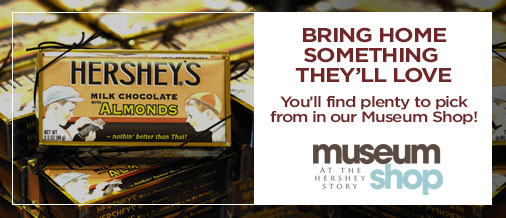Death Came for Me: 2nd Place – Bryanna Miller, Lancaster Mennonite School
I sat crammed in the corner of the cattle car with no water, food, or bathroom. The corner had bullet holes that allowed me to breathe the fresh winter air. I was drifting to sleep when the train gave a sudden jolt, and I instantly opened my eyes. It was days since the train had stopped. I thought we were just picking others up when a rush of wind came racing through as the doors opened. I heard the voice of a man barking at us, “Schnell! Schnell!” which meant hurry in German. I was pushed out with the others; the dead bodies stayed on the train.
We were ordered to line up into two separate lines, women and men. I swiftly did what I was told and sorted myself out with the women. I was sent to the right side along with my father. My mother, little sister Ava, and 8 year-old brother Benjamin were sent to the left. My father stood next to me, weeping.
“Papa,” I whispered, “Why are you weeping?”
“Chaya, my sweet little girl, there are rumors that they are being sent to their deaths. If they speak the truth we will never see them again until we join them with God,” he whispered back. I was heart-broken. As we walked to where we would be living, I muttered a little prayer to God, asking him to take my family into his hands.
We followed the SS officer up the dusty road to a brick building. Once inside, the officer told us to take our clothing off. We took a shower in scorching hot water that burned my skin, leaving it raw and really itchy. Our heads were shaved leaving no hair, and we were forced to put on filthy striped clothing with a prisoner number and yellow star sewn into it. We also received a pair of wooden clogs that hurt my feet immediately after putting them on. Suddenly, a voice boomed over the crowd, “Form a line! Schnell! Schnell!” Each of us shuffled forward hastily to form a line. Once I reached the front, a woman took an electric needle and tattooed the number A-3672 into my left arm. The pain was extremely intense, but I couldn’t let them see me sweat. Finally, we headed to the barracks to sleep.
I woke up, fully alert to what was going on all around me. All of us were ordered to line up in straight lines and stand still without talking. Nazis went through each of us, making sure we were there. After what felt like hours, we could finally eat. We rushed over to the food line with mess tins in hand. I received a black tasteless coffee and a small piece of bread that I gulped down rapidly.
Following our breakfast was work. My work site was in the camp. All day long I was aware of Nazis, observing us closely. I worked awfully fast, but it wore me out quickly. A woman stood near and eyed me closely. I stared back at her. When the Nazi soldier finally walked away, the woman came tiptoeing toward me and whispered, “Girl, what is your name?”
“Chaya,” I whispered back.
“Chaya, why are you working so hard?”
“I don’t want to be beaten.”
“Child, if you work so hard, you will die. You need to pace yourself, be smart about it. You need to work quickly when they look at you and slowly when they don’t. This is what you must do to live.”
She stopped whispering at the sound of black boots coming closer and closer. We started back to work, but it was too late. He saw the woman standing next to me. He said to her, “Did you just stop and rest to talk to this Schmutz?” which meant filth, as he pointed to me. The woman didn’t answer. “I asked you a question Jude.” The soldier proceeded to slap her hard across the face, sending her to the ground. He carried her over to an area and had her kneel down. A ditch lay in front of her. “This is what will happen when you rest,” he snarled. He pulled out his gun and with a bang, her body shot into the ditch. She laid there dead. “Remember,” he shouted, “Arbeit macht frei. Work makes you free.” As he said this he grinned a menacing grin and stomped off. I gasped and went back to work, the memory engraved in my mind.
Months went on and I grew thinner and looked more like a skeleton each day. I was beaten almost every day by Nazis and Kapos and was sinking lower into depression. Every day was the same endless work, with no reward and only scraps of food. Disease was spreading about all over the camp, leaving everyone it touched awfully sick. My papa had gotten ill and was not doing well. He slowly was turning into a Muselman, which meant he was giving up and couldn’t keep up with heavy hours of labor.
One day, after a hard day’s work, I started walking back to the camp for evening roll call. Every day, Nazis used this time to stage hangings and shootings. I stood in line, still as a statue, when a man fell over a few lines down. He was sick and unable to stand up. He wasn’t the first to have fallen, but never-the-less, I felt bad for him. A guard seized his head and forced him through the neck loop at the hanging stage. I looked at the man’s face and recognized him. He was my papa! I tried to cry out, but I couldn’t muster a word. The guard kicked the chair and I nearly screamed. My papa’s neck snapped. Right at that moment, death reached out and took him into his hands. Soon I would join him, cradled in death’s cold arms.
Bibliography
- “Auschwitz-Birkenau.” Auschwitz-Birkenau. N.p., n.d. Web. 14 Jan. 2015.
- “Auschwitz-Birkenau: Living Conditions, Labor & Executions.” Living Conditions, Labor & Executions at Auschwitz-Birkenau. N.p., n.d. Web. 14 Jan. 2015.
- “Buchenwald Concentration Camp.” Wikipedia. Wikimedia Foundation, n.d. Web. 15 Jan. 2015.
- “Children during the Holocaust.” United States Holocaust Memorial Museum. United States Holocaust Memorial Council, 20 June 2014. Web. 15 Jan. 2015.
- “CHILDREN IN AUSCHWITZ (part 1).” CHILDREN IN AUSCHWITZ. N.p., n.d. Web. 13 Jan. 2015.
- Gratz, Alan. Prisoner B-3087. New York: Scholastic, 2013. Print.
- “Just a Normal Day in the Camps.” Just a Normal Day in the Camps. N.p., n.d. Web. 16 Jan. 2015.
- “Name of the Day.” Behind the Name: Meaning of Names, Baby Name Meanings. N.p., n.d. Web. 14 Jan. 2015.
- “The Holocaust Explained – Homework & Online Education Tool for Students.” The Holocaust Explained – Homework & Online Education Tool for Students. N.p., n.d. Web. 14 Jan. 2015.
- Zullo, Allan, and Mara Bovsun. Survivors: True Stories of Children in the Holocaust. New York: Scholastic, 2004. Print.


